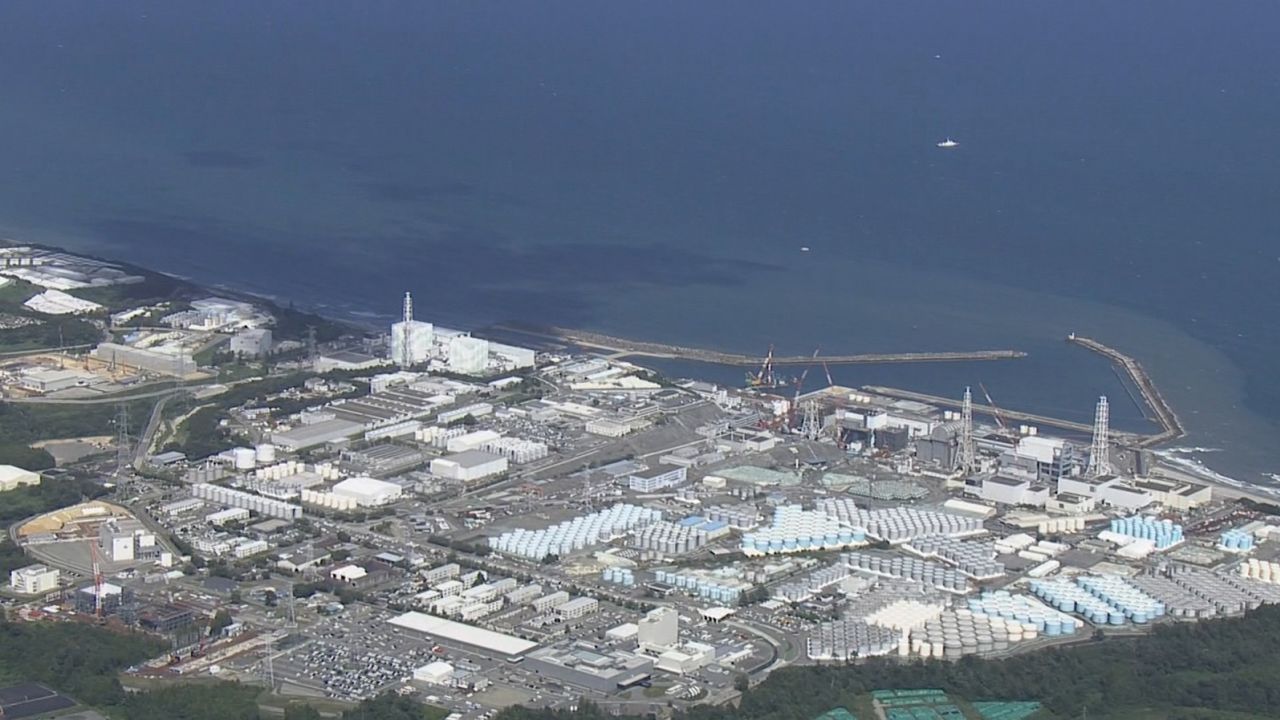CNN
—
China on Thursday announced a ban on all seafood from Japan in response to Tokyo’s decision to begin releasing treated radioactive wastewater from the Fukushima nuclear power plant, dramatically escalating an already tense feud between the two neighbors.
The rollout is part of a controversial plan that has met with strong objections from many consumers and some regional countries, with Beijing leading the charge.
The launch of the release on Thursday afternoon sparked a fiery wave from China, which described the move as “selfish and irresponsible”.
China’s customs department later announced it would halt imports of all aquatic products from Japan — meaning it could ban marine products other than seafood such as sea salt and seaweed.
The customs department said in its statement that the move was made to “prevent the risk of food safety radioactive contamination from Japan’s Fukushima nuclear-contaminated water discharge” and to protect the health of Chinese consumers.
Japan has argued throughout the building dispute that it is safe to discharge the treated water and that there is an urgent need to free up space at the crippled nuclear plant.
The evacuation began at 1 a.m. local time (midnight ET), according to state-owned power company Tokyo Electric Power Company (TEPCO).

The company said it expects to discharge only 200 or 210 cubic meters of treated wastewater. From Friday, it plans to release 456 cubic meters of treated sewage every 24 hours and a total of 7,800 cubic meters for 17 days.
TEPCO said that if any abnormalities are found in the discharge equipment or the dilution levels of the treated wastewater, the operation will be suspended immediately and an investigation will be conducted.
A boat will be sent to the port late Thursday to collect samples to monitor and ensure the discharged treated sewage meets international safety standards.
Japan’s devastating earthquake and tsunami in 2011 left the water at the Fukushima nuclear power plant contaminated with highly radioactive materials. Since then, fresh water has been pumped in to cool the fuel debris in the reactors, while groundwater and rainwater have seeped in, creating highly radioactive wastewater.
The plan to release the water has been in the works for years, with officials warning in 2019 that they were running out of space to store the material and had “no other options” but to release it in a purified and highly diluted form.
While some governments have expressed support for Japan, others have strongly opposed the wastewater release, with many consumers in Asia hoarding salt and seafood amid fears of future contamination.
The US has backed Japan, and Taiwan has agreed that the amount of tritium released should have “minimal” impact.
However, China and the Pacific Islands voiced their opposition, arguing that the release could have wide regional and international impact, and threaten human health and the marine environment.
Before China announced the seafood ban on Thursday, its foreign ministry said the wastewater release would “send dangers to the entire world and extend pain to future generations of humanity”.
Chinese social media was also awash with anger and consternation on Thursday, with the hashtag gaining more than 800 million views within hours of its release on Weibo.
Many users supported the seafood ban, while others called on authorities to go one step further. “We should ban all Japanese products,” read one excellent comment.
Many in China continue to have ambivalent feelings toward Japan. Although Japanese products and culture are popular in China, it is not unusual for the Japanese to call for a boycott of everything whenever old grievances fueled by the current bilateral conflict resurface.
In 2012, a series of anti-Japanese protests in cities across China turned violent after Japan decided to nationalize an island in the East China Sea claimed by both Tokyo and Beijing.
The total ban on Japanese aquatic products and seafood expands on previous regulations that had already halted imports from Fukushima and nine other regions in Japan. Earlier this week, Hong Kong announced a similar ban on food imports from parts of Japan.
Both destinations – China and Hong Kong – represent Japan’s top two largest export markets for seafood, indicating potential trouble for the Japanese fishing industry, according to Japanese customs data.
Despite the setback, Japanese officials and their international backers, including the United Nations nuclear watchdog, argue that the release is safe.
Over the years, wastewater has been continuously treated to filter out all the harmful components that can be removed and then stored in tanks. According to TEPCO, most of the water is treated a second time.
When the wastewater is finally released, it is heavily diluted with clean water, so it contains very little radioactive material. It will travel in the Pacific Ocean through an undersea tunnel 1 kilometer (0.62 mi) from the coast.
Third parties — including the UN’s International Atomic Energy Agency (IAEA) — monitor emissions during and after release.
The IAEA has stationed staff at its newly opened Fukushima office, and it said it would monitor the situation for several years.

“Friend of animals everywhere. Devoted analyst. Total alcohol scholar. Infuriatingly humble food trailblazer.”